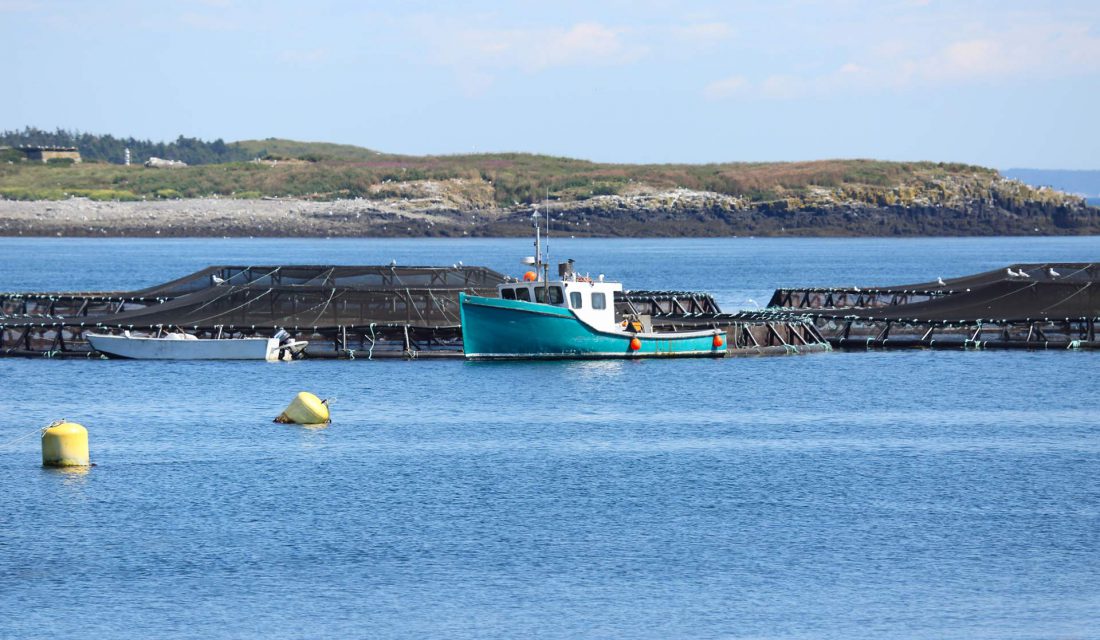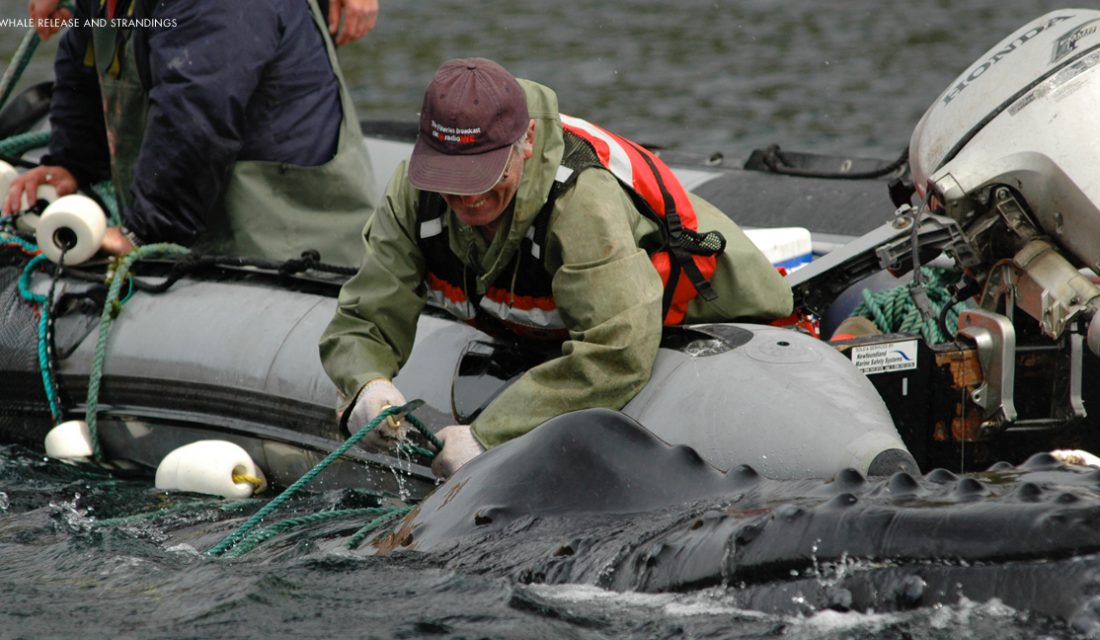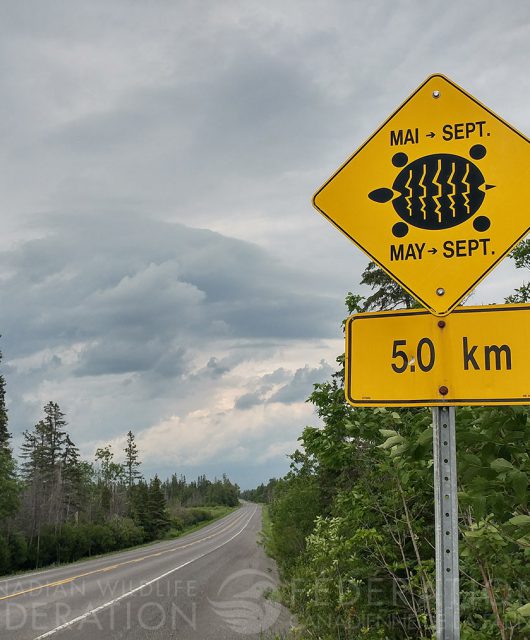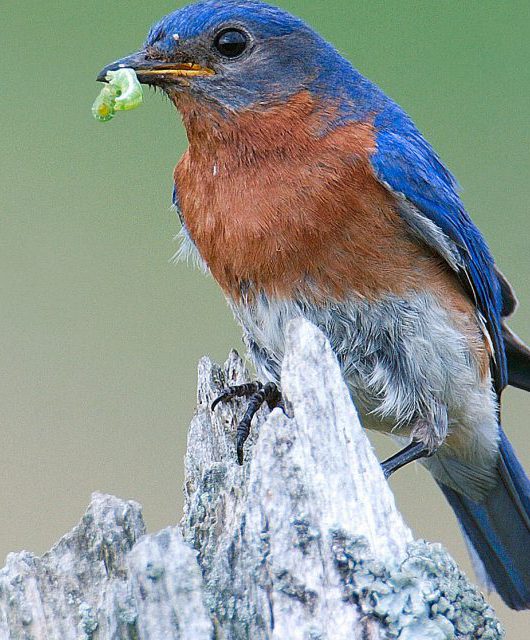June 8 is Oceans Day, your opportunity to celebrate Canada’s oceans and the life teeming within them.
Declared in 1992 at the UN Earth Summit in Rio de Janeiro, Oceans Day falls on June 8 every year and raises awareness about the importance of Earth’s oceans and the need for all of us to take better care of them.
But amidst the celebration, let’s not forget the threats facing our marine species. Over the course of Rivers to Oceans Week (from June 8 to 14), we’re highlighting seven threats facing our waterways. But let’s hone in on the threats facing our oceans and the species that live there.
#1 – Ship Strikes

Ship strikes can pose negatively impact all kinds of whales; many of which undergo incredible migrations every year between calving and feeding grounds. When these migratory routes cross paths with the shipping lanes, there’s a higher risk of the whales and the vessels colliding which can result in injury or death.
#2 – Disease

Have you ever heard of open-pen finfish aquaculture? It’s important to know about – especially considering so many species of fish, shellfish and seaweed are raised for consumption through aquaculture. The most common? Atlantic salmon.
When raised within net pens or cages that are open to the natural environment, so many issues can arise, including the spread of disease and parasites. Sounds nasty, doesn’t it?
#3 – Commercial Fishing Gear

Entanglement, for example, is one of the greatest threats fishing gear poses on aquatic animals. Sea lions, sea turtles, seals, whales and sea birds can all accidentally become entangled in fishing gear, resulting in lacerations, infections and death by drowning, injury, disease or starvation.
Did you know that approximately 25 per cent of the remaining population of North Atlantic Right Whales are entangled in fishing gear annually? While some swim away with only minor scars, others die a terrible death.
The Canadian Wildlife Federation is working hard to turn the tide on the threats facing our oceans and the creatures, big and small, that call them home.
Canada’s whales, sea lions and sea turtles can’t speak for themselves, so it’s up to us to speak up for them. This spring the Parliamentary Committee on Fisheries and Oceans will be meeting to review the effectiveness of the Fisheries Act. We at the Canadian Wildlife Federation believe that the Fisheries Act needs to be more effective on how it protects water and wildlife.
Canada’s wildlife can’t speak for themselves, so it’s up to us to speak up for them. We’re asking you to add your voice today. Let the Parliamentary Committee on Fisheries and Oceans know that you care deeply about our waterways and wildlife.




